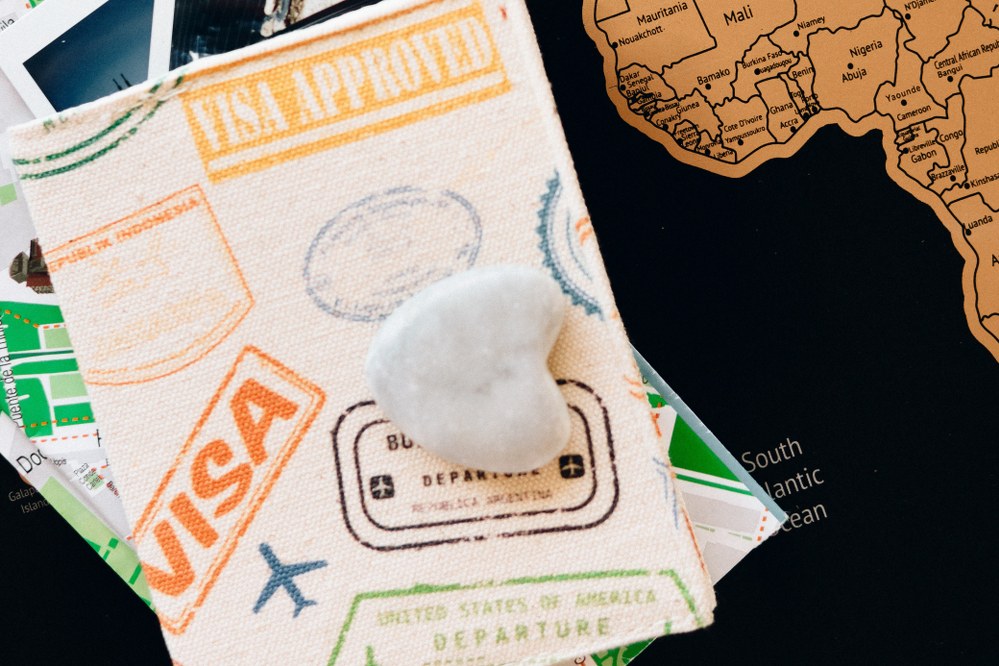Moving abroad is more common today than ever before. According to a 2020 report by the International Organization for Migration, as of June 2019 272 million people live in a country other than their country of birth. That’s an increase of 20% since 2010.
Now, moving overseas is a huge commitment. It is also both exciting and daunting especially if you are doing it solo. You might have been on family or solo holidays in your new country of choice, but relocating permanently or even temporarily is a completely different ball game. You will be learning a new culture and language, meeting lots of new people, and generally trying to make sense of a whole new way of life. But before you can realise any of this, you need to think about the logistics.
Things to consider for your move abroad
Planning a move abroad can definitely feel overwhelming especially when you are single or a single parent taking the kids on this new adventure! But there are ways to make this process easier for yourself. To give you a helping hand, we’ve put together a checklist to get you started:
1. Sort out your finances
Living overseas can be more expensive than you think. Make sure you do your research by finding out the cost of living in your new home country, for example with a calculator such as Numbeo. Will your employer pay enough or are you going for an extended holiday and are funding the cost? Make sure you know what to expect, so you can put the necessary funds aside ahead of time.
Relocating abroad isn’t cheap, especially if you are planning to move to Australia. Make sure you get an estimate for your removal, so you can start saving early. Also, if you are moving as part of your job, your employer may be able to provide support for your relocation costs, such as flights, visas, and accommodation. And if this is not an option, you will need to find alternative funding sources such as loans or grants.
2. Get your documents in order
Once you have worked out your financing options, it’s time to get your paperwork in order. Find all the documents required to apply for stay and work in your chosen destination and check that they are accurate and up to date. This will save a lot of time and stress later when it comes to applying for visas, work permits, rental properties, etc. Most importantly, update your passport if necessary!
To help you along, here’s a list of some key documents that may be required by immigration authorities in your new country:
- Birth certificate
- Marriage or divorce certificates
- Driving licence
- Passport
- School/university records
- Medical records
- Social security cards
- Vaccination cards
- Financial records
- Adoption or custody papers

3. Consult an immigration professional
Consulting with an immigration professional will make the entire process a lot easier for you. They will know exactly which steps need to be taken next and what information is required at each stage of the immigration process.
Whether you are relocating for work or study, an extended stay with relatives, or anything else, tell your immigration advisor exactly why you are going abroad (and be honest!). This will allow them to advise you appropriately and accurately. Remember that not all countries require visas, so make sure to check with your advisor if you require a visa before collating paperwork that is not even needed!
4. Start early
It’s only human but leaving things to the last minute can jeopardize or considerably delay your new life in another country. So, if you want to ensure that you are able to move when and as planned, it’s best to start getting organised early.
If you don’t know where to start, make a list of all the things that need to be done before moving, and then break them down into smaller tasks with specific deadlines so that you don’t feel overwhelmed, but still get everything done on time.
Here are some things you need to complete 2-3 months before moving abroad:
- Review your tax obligations: Consider filing taxes as a non-resident to avoid double taxation on income earned abroad. You may also consider filing an extension on your taxes or making estimated payments while living abroad.
- Schedule your medical appointments: You will need to schedule medical appointments before leaving your country to get any immunisations or screenings that might be necessary when travelling internationally. These may include flu shots or rabies vaccinations (depending on where you are going).
- Apply for your visa and passport: Make sure you have all the documents needed for applying for a visa and passport well before your departure date, so there are no last-minute delays caused by missing information.

5. Find an international moving company
So, you’ve got your paperwork together and have consulted an immigration professional. It’s now time to book an international moving company like Muval. These companies will deliver your belongings safely overseas and even unpack them when they arrive at their destination. While they may be more expensive than domestic movers, they offer a wide range of services that make it easier for you to get everything done quickly, efficiently, and safely.
6. Find a place to stay
The day of your arrival will be one of the most exciting days of your life! But there are still plenty of things that need to be done before you can truly enjoy your stay in your host country. Here are two of the most important:
- Book a hotel or housing to stay: If you don’t have friends or family you can stay with, consider hotels, hostels, or renting an apartment for a few nights or weeks until you find a permanent place to live. This could take longer than a few days, so factor in the cost of staying in temporary accommodation, which is usually more expensive than a rental.
- Ensure you have access to money: You might not be able to open a bank account in advance of moving, so make sure you have deposited money in accounts that you can access from your new home country or have credit cards that will work abroad.

7. Get ready for moving day
You’ve got your passport, plane tickets, and a list of instructions from your moving company. Now it’s time to pack up your essentials. You can’t bring everything with you on the plane, so it’s crucial to consider what essentials are most vital for you in a new country for those first few days and possibly weeks until your other belongings arrive.
As you pack, remember to label all boxes clearly, so that you or your movers can place them in the correct room. This is particularly important if you have paid them to unpack kitchen contents or other items.
From getting your documents organised to finding a place to stay and deciding what to bring, there are a lot of things to consider when moving abroad. It may all feel terribly overwhelming at times, but remember to remain organised and calm, and to keep a written checklist for everything that you need to do. Good luck!